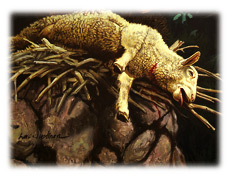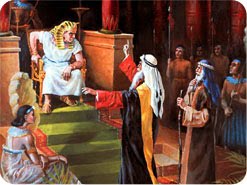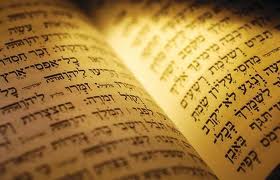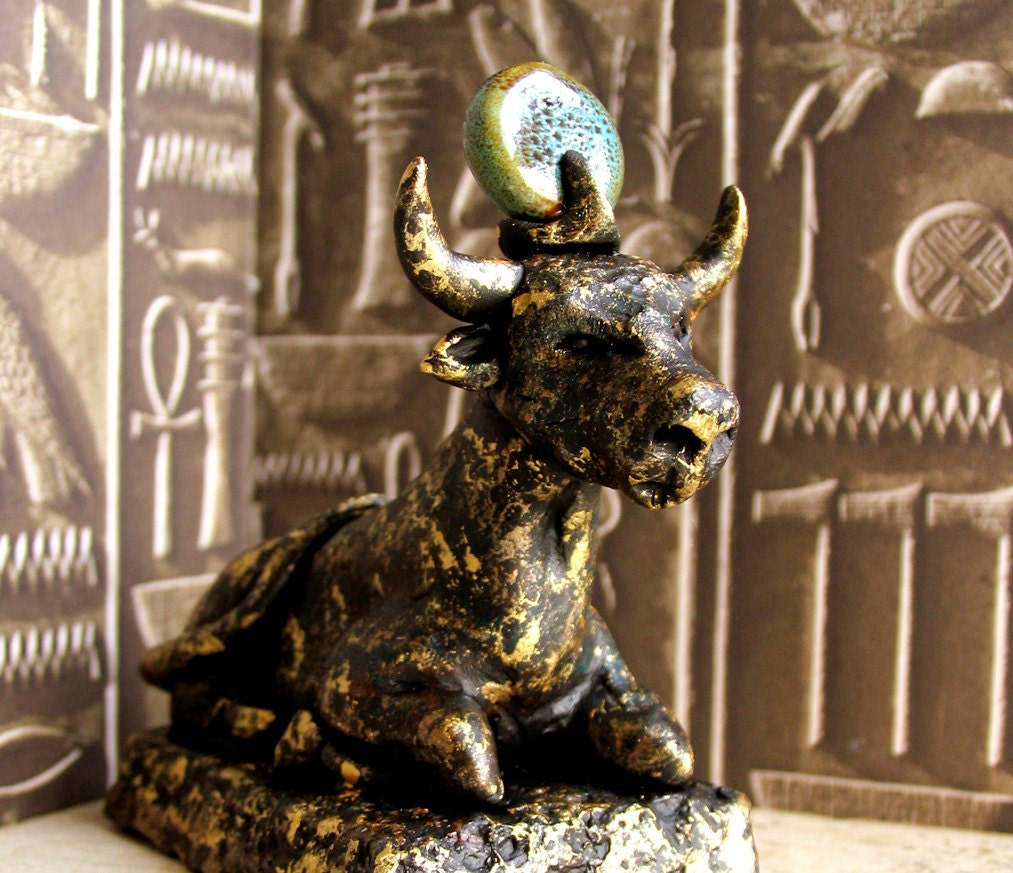Who is the Passover Lamb?
 One of the most important spiritual seasons in the life of a believer is the Biblical Feast of Pesach (Passover). The Festival celebrates the God of Israel and recalls our deliverance from all slavery, oppression and fear, be it the Egyptian serfdom four thousand years ago or slavery to sin and curse today!
One of the most important spiritual seasons in the life of a believer is the Biblical Feast of Pesach (Passover). The Festival celebrates the God of Israel and recalls our deliverance from all slavery, oppression and fear, be it the Egyptian serfdom four thousand years ago or slavery to sin and curse today!
For all those who have some intimate knowledge of the Living God of Israel, this Biblical Festival is time infused with unprecedented spiritual power and meaning.
It is also time to ask important existential questions and take stock of one’s life and faith. Let us, therefore, pose a few such questions for the season:
- What is the centerpiece of the original Passover celebration?
- What really happened on the night of our Exodus from Egypt?
- Is it fair or even wise to compare Jesus of Nazareth to the Passover Lamb?
For two thousand years now, the Church has promulgated the belief that the Jewish Rabbi named Jesus of Nazareth was not only the Second Person of the Three-Headed Deity walking the Earth in human flesh, but that he was also the Passover Lamb of God, whose death on the Cross took away the sins of all who would believe in this doctrine.
 It also appears that the Church has had good reasons for such a belief. For the Greek-speaking Testament itself seems to testify to the same “truth”! According to one gospel account, for example, John the Baptist identifies Jesus as the Lamb of God: “The next day John saw Jesus coming toward him, and said, “Behold! The Lamb of God who takes away the sin of the world! . . . Again, the next day, John stood with two of his disciples. And looking at Jesus as He walked, he said, “Behold the Lamb of God!” (John 1:29,35-36)
It also appears that the Church has had good reasons for such a belief. For the Greek-speaking Testament itself seems to testify to the same “truth”! According to one gospel account, for example, John the Baptist identifies Jesus as the Lamb of God: “The next day John saw Jesus coming toward him, and said, “Behold! The Lamb of God who takes away the sin of the world! . . . Again, the next day, John stood with two of his disciples. And looking at Jesus as He walked, he said, “Behold the Lamb of God!” (John 1:29,35-36)
The editors of the Gospels go to great lengths in arranging the events of the last days of Jesus’ life in such a way as to make them point to the “fact” that he is the Ultimate Passover Lamb, whose blood washes away our sins once and for all. The entire setting for the Last Supper is that of the Jewish Passover Seder! The Apostle Paul makes this doctrine unequivocal when he states: “For indeed Christ, our Passover, was sacrificed for us.” (I Cor. 5:7)
The writer of the Great Christian Apocalypse, the Book of Revelation, caps it all by painting the Slaughtered Lamb as equal to God Himself:
“And I looked, and behold, in the midst of the throne [of God]. . . stood a Lamb as though it had been slain. . . Then I looked, and I heard the voice of many angels around the throne . . . saying with a loud voice: “Worthy is the Lamb who was slain to receive power and riches  and wisdom, and strength and honor and glory and blessing!” (Rev. 5:6-12; See also Rev. 7)
and wisdom, and strength and honor and glory and blessing!” (Rev. 5:6-12; See also Rev. 7)
In short, in Christian theology, the Lamb becomes just as exalted and worthy of worship and praise as God Himself. Did God ever tell His people to worship the sacrifice along with worshiping Him?
In light of these beliefs, it behooves us to ask the question: “Is it really appropriate to equate Jesus of Nazareth, (whether we believe him to be a Jewish man or God in flesh), with the Passover Lamb, which made possible the Exodus of Israel from Egypt?” The heart of this inquiry is: “What or Who did the original Passover Lamb signify?” Let’s get back to the sources!
Exodus
After the Fourth Plague struck Egypt with the swarms of flies, its king was getting to be ready to strike a compromise with Moses and his people. We read: “Then Pharaoh called for Moses and Aaron, and said, “Go, sacrifice to your God in the land.” (Ex. 8:25) We know, of course, that on the part of the Pharaoh, this was only a ruse to prevent the Israelite slaves from moving out of the country completely!
 Moses’ response is most startling: “And Moses said, “It is not right to do so, for we would be sacrificing the abomination of the Egyptians to the LORD our God. If we sacrifice the abomination of the Egyptians before their eyes, then will they not stone us?” (v.26) – Moses, therefore, insists on Israel’s departure from the land.
Moses’ response is most startling: “And Moses said, “It is not right to do so, for we would be sacrificing the abomination of the Egyptians to the LORD our God. If we sacrifice the abomination of the Egyptians before their eyes, then will they not stone us?” (v.26) – Moses, therefore, insists on Israel’s departure from the land.
If you are a Christian, you are used to skipping over this dialogue as something that has but a slight significance to your theology. You are anxious to move on with the story. Today, on the other hand, we invite you to ruminate on the words of Moses; or, rather, the Word of God. Why is it that the People of Israel could not have brought their sacrifices to God in the midst of Egypt? Why is it that Moses terms those sacrifices “the abomination of the Egyptians?”
Here is another translation of this passage, which will help us grasp the point: “Then Pharaoh summoned Moses and Aaron and said, "Go and sacrifice to your God within the land." But Moses replied, "It would not be right to do this, for what we sacrifice to the LORD our God is untouchable to the Egyptians. If we sacrifice that which is untouchable to the Egyptians before their very eyes, will they not stone us!” (Ex. 8:21-22, JPS)
The study of ancient Egyptology has brought to light many aspects of that fascinating and idolatrous nation. We know today for an undeniable fact that ancient Egyptians practiced animal worship in the extreme. They worshiped frogs and crocodiles, flies and other creatures. More significant still, they also worshiped bulls, rams and . . . lambs!
When Moses protests in front of the Pharaoh that making sacrifices to the LORD would be inappropriate in the Land of the Nile, Moses reminds the wily monarch that what Israel sacrifices on the altar, Egypt worships as “gods.” Pharaoh’s sneaky tactics fail once again!
 The word denoting “Egyptian abominations,” used in the original Hebrew text, is “תּוֹעֲבַ֣ת” plural of “תּוֹעֵבָה” (pronounced “toav’ot”). The very same word is employed by the Holy Scriptures to speak about the idols of Israel’s neighbors. The following text from Deuteronomy makes it very plain indeed: “They provoked Him [God of Israel] to jealousy with foreign gods; with abominations they provoked Him to anger.” (Deut. 32:16)
The word denoting “Egyptian abominations,” used in the original Hebrew text, is “תּוֹעֲבַ֣ת” plural of “תּוֹעֵבָה” (pronounced “toav’ot”). The very same word is employed by the Holy Scriptures to speak about the idols of Israel’s neighbors. The following text from Deuteronomy makes it very plain indeed: “They provoked Him [God of Israel] to jealousy with foreign gods; with abominations they provoked Him to anger.” (Deut. 32:16)
In II Kings 23:13 we find: “Then the king defiled the high places that were east of Jerusalem, which were on the south of the Mount of Corruption, which Solomon king of Israel had built for Ashtoreth the abomination of the Sidonians, for Chemosh the abomination of the Moabites, and for Milcom the abomination of the people of Ammon.”
The fact of the matter begins to stare us squarely in the face: the sacrificial lamb that Israel slaughtered on its altar was one of the Egyptian deities, worshiped and revered in that African Land!
The Passover Lamb . . .
So, what did the Passover Lamb symbolize? I think that after what we have discovered so far, the further discussion may seem a bit redundant. Nevertheless, we must drive one final nail in the coffin of the Christian doctrine that Jesus of Nazareth is the Passover Lamb of God! Besides, comparing Jesus to the Passover Lamb is the opposite of exalting him . . .
What really happened on that memorable night, when millions of Jewish slaves were finally liberated by the God of Israel? Why did they have to slaughter thousands of Passover Lambs and smear their blood on the doorposts of their homes? Let us put the pieces of this puzzle together!
 Biblical scholars tell us that the Nine horrible Plagues terrified the Land of Egypt and its people for nine long months. Many of them showed the power of the God of Hebrews over the forces of nature, animal world and other deities worshiped by the Egyptians. The last few Plagues demonstrated that God made a difference between His people and the idol-worshiping crowd of Egypt, - the Plagues did not happen in the Land of Goshen, where Israelites sojourned!
Biblical scholars tell us that the Nine horrible Plagues terrified the Land of Egypt and its people for nine long months. Many of them showed the power of the God of Hebrews over the forces of nature, animal world and other deities worshiped by the Egyptians. The last few Plagues demonstrated that God made a difference between His people and the idol-worshiping crowd of Egypt, - the Plagues did not happen in the Land of Goshen, where Israelites sojourned!
The time of the Plagues was designed not only to humble the Egyptians and punish their idolatry; it was also meant to test the Israelites and their willingness to serve the only Living God! The Final Test was to be the most decisive!
- “Now the LORD spoke to Moses and Aaron in the land of Egypt, saying, “This month shall be your beginning of months; it shall be the first month of the year to you.” (Ex. 12:1-2) – Israel was about to begin a new life. They were to leave idolatry and slavery behind and become One Nation under One God!
- “Speak to all the congregation of Israel, saying: ‘On the tenth of this month every man shall take for himself a lamb, according to the house of his father, a lamb for a household. . . Your lamb shall be without blemish, a male of the first year.” (v.3,5) – Egyptians believed, of course, that their “gods” were perfect and unblemished. This way, the connection will be indeniable!
- “You may take it from the sheep or from the goats.” (v.5) – Egyptians worshiped both!
- “Now you shall keep it until the fourteenth day of the same month.” (v.6) – The entire Land of Egypt was to witness Israel’s determination to defy their idolatry and prepare “Egyptian abominations,” or their “gods” for slaughter! These four days provided sufficient time for that.
 - “Then the whole assembly of the congregation of Israel shall kill it at twilight.” (v.6) – This was that final act of Israel’s commitment to the God of Jacob that would seal their relationship forever! They were to slaughter an Egyptian idol right in the midst of that idolatrous land!
- “Then the whole assembly of the congregation of Israel shall kill it at twilight.” (v.6) – This was that final act of Israel’s commitment to the God of Jacob that would seal their relationship forever! They were to slaughter an Egyptian idol right in the midst of that idolatrous land!
- “And they shall take some of the blood and put it on the two doorposts and on the lintel of the houses where they eat it.” (v.7) – Not only were the Israelites required to slaughter an Egyptian idol and “eat it for lunch,” they were obligated to proclaim that fact in a loud, clear and unmistakable fashion, - by displaying the blood of the Egyptian deity on their doorposts!
- “‘For I will pass through the land of Egypt on that night, and will strike all the firstborn in the land of Egypt, both man and beast; and against all the gods of Egypt I will execute judgment: I am the LORD. Now the blood shall be a sign for you on the houses where you are. And when I see the blood, I will pass over you; and the plague shall not be on you to destroy you when I strike the land of Egypt.” (vv.12-13) – When the LORD saw the blood of an Egyptian deity displayed boldly by His Chosen People, He saw their commitment to the monotheistic faith of Abraham, Isaac and Jacob! They were finally ready to serve Him only!
The Hebrew text is plain and unambiguous, my friends! The Passover Lamb, slaughtered on the night before the Exodus, stood for an Egyptian idol, and, by extension, for the entire system of the Egyptian idolatry! When the Jews slaughtered that idol, they crossed the point of no return in their relationship with Egypt and committed themselves wholly to the God of Israel!
Comparing Jesus to the Passover Lamb, therefore, is hardly a compliment to that Jewish rabbi, who never intended to create yet another idolatrous religion, known today as Christianity! How ironic, therefore, that billions of people today have come a full circle and worship the same deity that ancient Egyptians adored in their darkened land!
It is an obvious fact that the Passover Lamb was not intended to cover people’s sins, as Christianity would have us believe! After all, only the firstborn children were affected on that fateful night. For the rest of the people, be they Egyptians or Hebrews, the smearing of the blood or its absence would have had no effect whatsoever! This way, it is plain that the blood of the sacrificial lambs was never meant to cover anybody’s sins, as the Church has wrongfully insisted!
 As in the biblical narrative of Exodus, only Israel continues to raise the Banner of Monotheisms today, calling the world back to the One and Only Living God, - the Holy One of Israel!
As in the biblical narrative of Exodus, only Israel continues to raise the Banner of Monotheisms today, calling the world back to the One and Only Living God, - the Holy One of Israel!
Where are you in your devotion and faith? Are you still a worshiper of the Lamb?